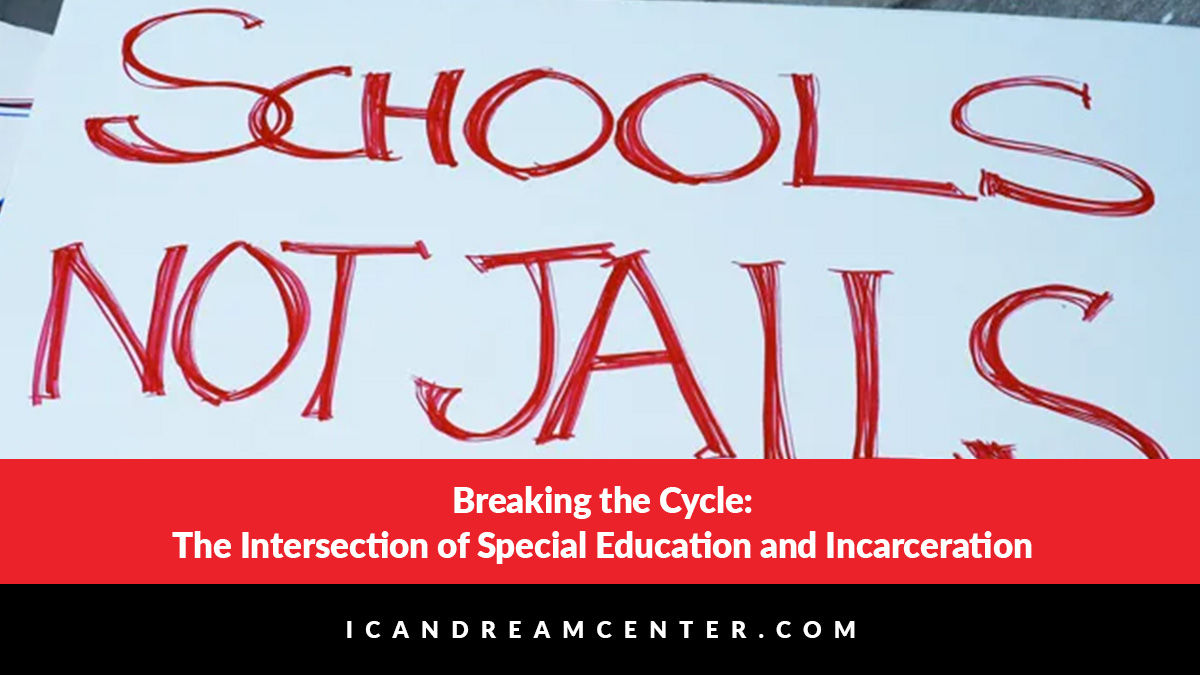
Breaking the Cycle: The Intersection of Special Education and Incarceration
In the complex web of societal challenges, the intersection of special education and incarceration is a critical issue that demands our attention. A disproportionate number of individuals with special education needs find themselves entangled in the criminal justice system, highlighting a troubling cycle that perpetuates disadvantage. This blog post delves into the various facets of this intersection, exploring the root causes, consequences, and potential solutions to break the cycle.
The Link Between Special Education and Incarceration
- Special education students often face educational disparities that can contribute to their increased likelihood of involvement in the criminal justice system. Issues such as inadequate resources, underfunded schools, and a lack of tailored support can hinder their academic progress, leading to frustration, disengagement, and ultimately, a higher risk of delinquency.
- Many individuals within the criminal justice system have undiagnosed learning disabilities or mental health challenges that were not adequately addressed during their school years. Without proper support, these individuals may struggle to navigate the education system, which can contribute to a pathway toward delinquent behavior.
- The school-to-prison pipeline is a troubling phenomenon that sees students, particularly those with special needs, funneled from educational institutions into the criminal justice system. Zero-tolerance policies, harsh disciplinary measures, and a lack of alternative intervention strategies disproportionately affect students with special education needs, pushing them towards incarceration instead of rehabilitation.
Consequences of the Intersection
- Individuals caught in the intersection of special education and incarceration often face a cyclical pattern where their educational disadvantages contribute to criminal behavior, leading to incarceration, and subsequently exacerbating their educational challenges upon release. Breaking this cycle requires a multifaceted approach that addresses both educational and criminal justice system shortcomings.
- Once incarcerated, individuals with special education needs often face limited access to rehabilitation programs tailored to address their specific challenges. Without targeted interventions, these individuals are more likely to return to the criminal justice system upon release, perpetuating a cycle of incarceration and missed opportunities for personal growth and development.
Breaking the Cycle
- Implementing comprehensive education reforms is essential to addressing the root causes of the intersection between special education and incarceration. This includes increased funding for special education programs, better training for educators to identify and support students with diverse needs, and a shift away from punitive disciplinary measures.
- Early identification of learning disabilities and mental health challenges is crucial. By implementing early intervention programs and providing adequate support during a child’s formative years, we can mitigate the risk of academic struggles and reduce the likelihood of involvement in the criminal justice system later in life.
- Building bridges between the education and criminal justice systems is vital. Collaboration can facilitate the development of reentry programs that address the unique needs of individuals with special education backgrounds, ensuring a smoother transition back into society and reducing the risk of recidivism.
The intersection of special education and incarceration demands our collective attention. By understanding the root causes, acknowledging the consequences, and actively working towards systemic changes, we can break the cycle that disproportionately affects individuals with special education needs. It is only through a holistic approach, encompassing education reform, early intervention, and collaborative efforts between systems, that we can create a more equitable and supportive environment for all individuals, regardless of their educational backgrounds.
